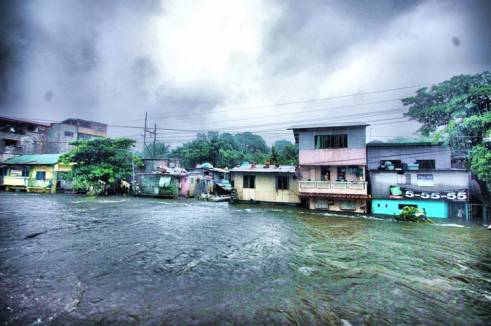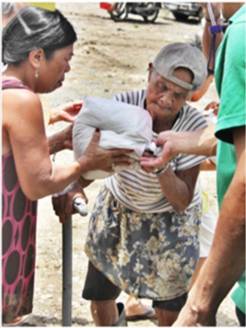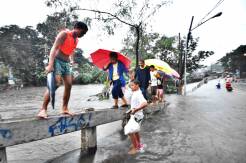By Navdha Malhotra
On 30 July 2012, the Philippines was struck by typhoon Saola, which brought heavy rain and floods that have affected thousands of people. One week later, more rain combined with tropical storm Haikui, further submerged up to 80% of the capital, Manila. So far, 66 people are reported to have been killed by the disaster.

Civil defence chief Benito Ramos said the huge displaced population, including 441,000 people crammed in crowded evacuation camps, would need to be fed and taken care of for at least another seven days. “The bulk of our operations involves relief, but also clean-up,” Ramos said. But with 2.7 million people affected, many are having to fend for themselves.
HelpAge and COSE response
HelpAge is working with our Affiliate, the Coalition of Services of the Elderly (COSE), to provide immediate and essential relief to older people and their families affected by the flood in the National Capital Region, Rizal and Bulakan.
The Disaster Risk Reduction committees of older people’s organisations, led by the Confederation of Older Persons’ Associations of the Philippines (COPAP), have carried out a rapid needs assessment. The assessment is to evaluate flood damage and its impact on older people; identify older people’s most urgent needs and ensure coordination with other relief agencies.
Older people affected by the floods are in need of food, drinking water, blankets and medicine. While many older people have been moved to evacuation centres, some remain stranded in their homes. The distribution of relief packages has already started.
Ensuring vulnerable older people are included in response
Our priority will be to provide food and other essential items to older people who are isolated, in poor health, without food or medicine and whose houses have been damaged.
Our partner COSE will respond to the emergency by working in 62 areas. They will:
- Distribute food including rice, sardines, noodles and milk to 20,000 people including 4,000 older people.
- Distribute other basic items such as, mattresses, soap and alcohol for disinfecting wounds to 4,000 older people.
- Work with local health volunteers to identify the number of older people in need of medicine and healthcare.
COSE is also working with the Department of Social Welfare and Development, local government units, the UN Office for the Coordination of Humanitarian Affairs (UNOCHA) and others to ensure older people and other vulnerable groups receive adequate relief and support.
Disaster risk reduction training and older people’s organisations
Members of older people’s organisations who have received disaster risk reduction training are also taking part in the response to the floods.
Nanay Ofel, 62, a member of her local older people’s organisation said: “The moment I heard the news on the radio and television that heavy rains were expected in Manila, I felt the same fear as when typhoon Ketsana hit three years ago.
“At first, I was so frightened but I told myself that this time, we wouldn’t suffer as much because we know what to do.”
Nanay Ofel called people and sent messages using her mobile phone to other members of the older people’s organisation in her area to warn them about the storm.
She added: “During the Disaster Risk Reduction and Management training provided by organised by COSE, we learnt the importance of communication before, during and after the disaster. Now I always inform my family members and other older people if anything happens.”
Nanay has also been an active part of the COSE and COPAP team that has been monitoring and supporting older people in affected areas, particularly those in the evacuation centres.
